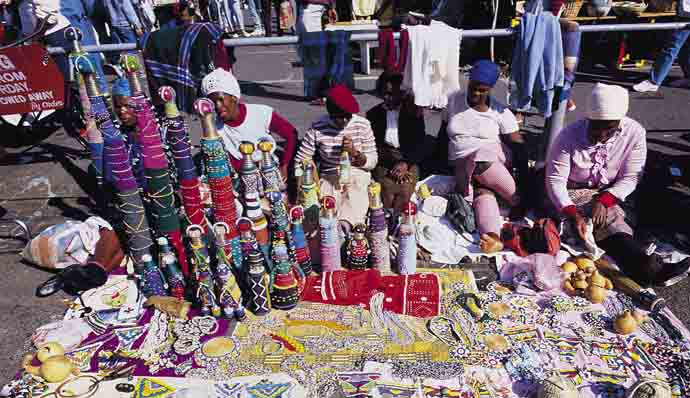By Doaa Hussein
The International Labour Organisation (ILO) once defined the informal economy as all economic activities by workers or economic units that are—in law or practice—not covered or sufficiently covered by formal arrangements.
The grey or black economy, also known as informal economy, entails a part that is neither been taxed, nor monitored by any form of the government. Its activities are not included in the Gross National Product (GNP) or the Gross Domestic Product (GDP). Associated idioms include “under the table”, “off the books” and “working for cash”. As of the World Bank, one apparent attraction in the informal economy is financial, which means that a person working in this type can raise his taking home financial earnings without the need to comply with regulations and taxations.
There is a huge difference between the formal and informal sectors, where the latter is characterised by: ease of entry, reliance on indigenous resources, family ownership of enterprises, small scale of operation, labour-intensive and adapted technology, skills acquired outside the formal school system, unregulated and competitive markets.
It is a two way weapon. On the one hand, informal sector helps employ people who cannot find jobs, while on the other hand, this leads to a loss in budget revenues, and eventually de- ability to finance infrastructure, this results in turn in raised taxes on the registered labour. The informal economy in Africa is a big business. The International Labour Organisation (ILO) estimates that its average size if contributed to gross domestic product in sub-Saharan Africa is 41 per cent. This fluctuates from under 30 per cent in South Africa to a high 60 per cent in Nigeria, Tanzania and Zimbabwe.
The informal sector also poses a huge employer. It represents about three-quarters of non-agricultural employment, and about 72 per cent of total employment in sub-Saharan Africa. In 1990s, about 93 per cent of new jobs created in Africa were in the informal economy.
Types of informal economy jobs
The most prevalent types of work in the informal economy range from home-based workers, street vendors to small workers in informal firms, and new entrepreneurs. Home- based workers are larger in size than other types, however they are less visible.
Mohamed.H is an Egyptian young man, who owns a small informal costumes firm in down town, which embraces tens of workers working almost 12 hours per day. When asked about the reason why he didn’t licensed the firm, Mohamed said “the expenses to do so are highly overpriced that they could cost me the total money I earned in the whole month,” he added that government’s routine and complicated procedures also pose a great hinder.
The Egyptian insurance association takes almost 40 per cent every month from the employer to provide insurance for his employees. Mohamed assured that the government didn’t interfere in or monitor the informal sector.
Atef.M is an old tailor in the firm; he has been working for many years in the informal economy. Atef told MEO that he is making more money here than he can earn if he worked in a legal firm, however, he suffers from the lack of insurance, adding that he doesn’t know what to do after getting retired the upcoming month.
The small factory also possesses many young talents, who all come daily from other governorates. Most of them are not highly educated.
The informal economy as a career of choice
On a different note, a World Bank report points to a new trend in informal economy, people having high levels of education entering the informal sector as a career of choice.
Mohamed is a young Egyptian man in his 30s, who works as a tailor in one of the Egyptian informal costume firms. Although being a university graduate, he resorted to the informal sector to work in. “If I worked with my university degree, I wouldn’t earn that much to get my children into better schools as I did.”
His colleague Mostafa.T agrees with him, saying that he is a graduate of agricultural engineering, and he couldn’t work in his field because of the limited working opportunities in the government to the employees’ relatives.
As for Egypt, the size of informal economy has marked $2.2tn according to World Bank report, alongside, the unpaid taxes from the informal sector reached 15 per cent, about $330bn.
Driving forces
According to a study by Fatima Al-tebi, economics researcher at research centre, there are a variety of reasons that led to the development of the informal sector in the African countries:
1- High unemployment rates
2- Great number of workers in the formal sector who resort to the informal one for better income.
3- Privatisation
4- Large number of women and children labour in the informal sector
5- Government’s debility to enforce laws
6- Slow economic growth
7- Tepid governmental procedures
8- Lack of resilience in the formal sector, and strict regulations
On another hand, Ayman Abdelzaher, an official at the Egyptian Insurance Association, said to MEO, that the main solution to the informal sector’s overspread is the need to amend strict regulations, including loan requirements from the banks to startups.
“Governments should start national projects of controlling and getting benefit from the informal sector, both taxes and insurance fees should be alleviated,”Abdel Zaher stressed.
How to vitalise the informal sector
The study by Fatima Al Tebi signalled out 4 main ways to benefit from the informal sector outcome:
1- Creating Job opportunities
2- Better working environment
3- Easing this sector’s reach in different markets
4- Lower cost of insurance
5- Exemption from taxes till reaching higher level of growth to compete
6- Carving out more opportunities in the countryside.
